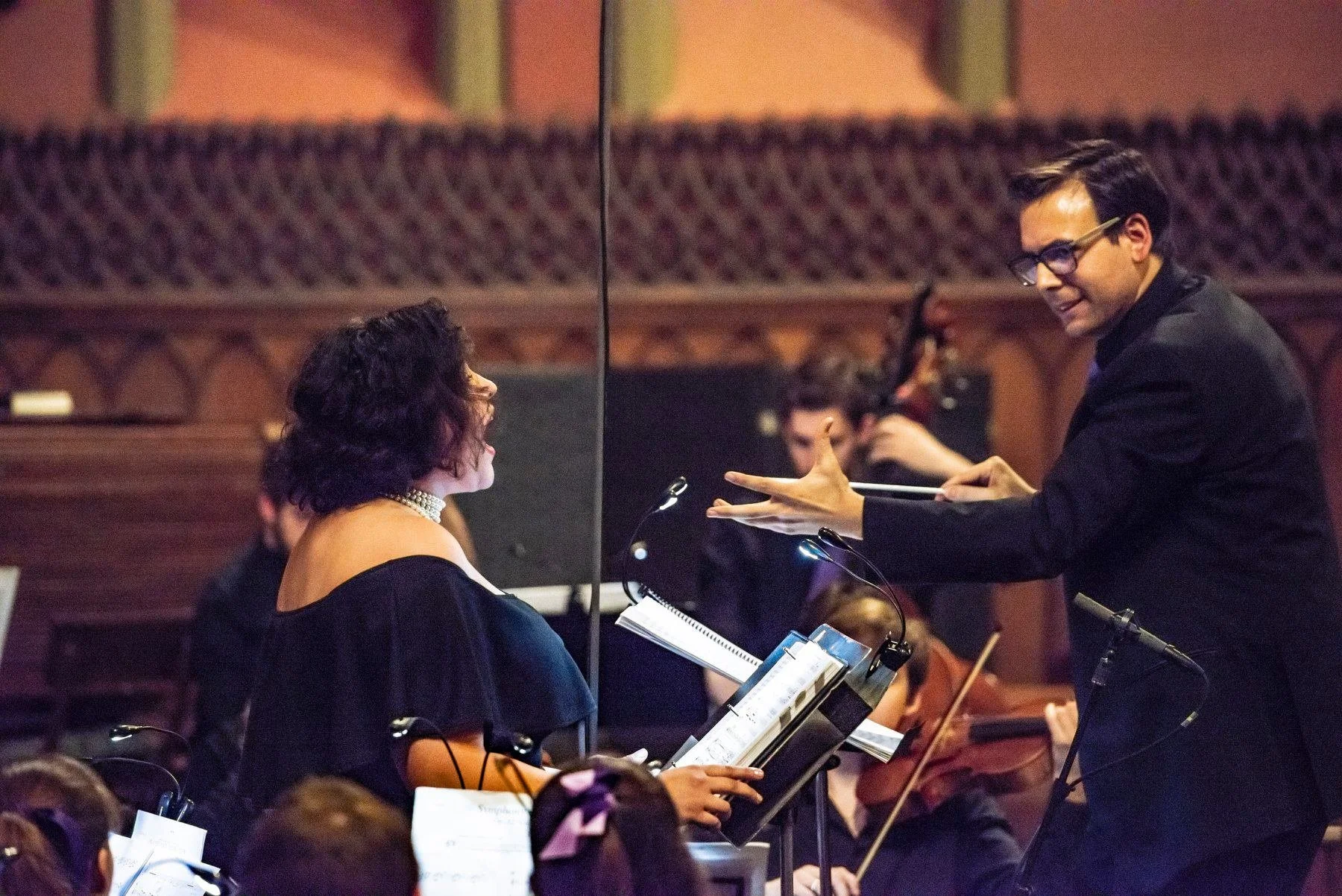THE GESTURES OF PERSECUTION AND REDEMPTION THROUGH MUSIC
A Presentation by Kristo Kondakçi
January 18, 2023
Kristo Kondakçi presented an autobiographical talk to Examiners that wove together his Albanian family’s belief in democracy and social justice with their love of music.
Kondakçi immigrated to the United States when he was 6, after many in his family had been imprisoned and executed—some for the crime of playing Western music. They suffered under the increasingly repressive totalitarian government, closely allied with Chinese Communism, that ruled Albania after World War II.
When Kondakçi was 10 he saw his first concert: James Levine conducting the Boston Symphony Orchestra at Symphony Hall. “I remember this moment so clearly,” he said. “It was before the concert, full of noise and cacophony, the audience talking, musicians warming up onstage. The conductor used a gesture to launch the music, to bring these people together. I watched his movements provoke and shape the sound of the orchestra.” Kondakçi wanted to do what that conductor did.
He also wanted justice for his family, which became possible after the fall of Communism. He went back to Albania when he was 23 and a graduate student in conducting at the New England Conservatory. “I found myself in court,” he said, “arguing with six Albanian lawyers, feeling the weight of my family history on my shoulders, continuing litigation that my grandfather was involved in, fighting for, in essence, recognition for what had happened to my family during the 20th century.”
Kondakçi took breaks at a coffee house, and one day he struck up a conversation with a man who turned out to be the conductor of the Albanian National Orchestra. A few weeks after he returned to Boston, Kondakçi was invited to conduct the orchestra’s opening concerts in the upcoming season. It was his first professional engagement.
“As I rehearsed with the Albanian orchestra,” he said, “I realized that these musicians carried with them an ethic of tremendous suspicion and competition. It kept them from listening to one another…the rehearsals unearthed an insight, rooted in the same gestures that called me at age 10. My role as a conductor is not just about fixing technical issues, it is about using my gestures to guide a group of individuals to create something larger than themselves.”
These concerts became, Kondakçi said, “a profound intergenerational healing of trauma for my family.” They also became a national sensation. On the morning of the first concert, the front page of the newspaper was divided equally between coverage of the Pope’s impending visit to Albania and the concert.
“More than a sensation,” Kondakçi said, “it felt as if our performances achieved a kind of national catharsis. And my role as a conductor, a leader, completely changed. Being a musician, especially a classical musician, in today’s world, means the musician is a social innovator.”
Kondakçi’s career since graduating from NEC has combined performance with social causes and community partnerships. In 2017 he founded Eureka Ensemble, a group of fellow musicians from NEC. “Our flagship project was focused on empowering women in music, a program of existing works and a new commissioned work based on the five stages of recovery from sexual abuse. Next we created a choral fellowship for women experiencing homelessness in Boston, and we created a spiritual sense of home that many of our singers had lost.” The concert, Kondakçi said, was a huge success. 800 people filled the Church of the Covenant, and at the end performers and audience sang “Amazing Grace” together. An audience member approached Kondakci and offered to fund the program in perpetuity.
At the same time, an executive at Pfizer approached Kondakçi with the idea of forming a musical program to “spark collaboration between biotech companies and create a creative environment for people in the industry.” The Kendall Square Orchestra made its debut at the Biotech Week Boston conference in 2018. Since 2019, the annual benefit concert, Symphony for Science, with guest performers such as Keith Lockhart, has raised $160,000. The orchestra, a mix of scientist-musicians and pros, “has become a home for our musicians to express themselves and relieve themselves of stress,” Kondakçi said.
This spring, the Symphony for Science concert will benefit Next Step, a nonprofit that works with young people with rare diseases to share their experiences through music. Kondakçi said, “We have created My Mile: An International Rare Disease Anthem that will be recorded and published globally, so other groups can add their stories to the song.” Kondakçi invited Examiners to attend as his personal guests at the concert, slated for June 4 at Symphony Hall. “We will perform an orchestrated version of My Mile as part of the event.”
Leaving the meeting, this Examiner thought about how conductors today work to engender a powerful sense of discipline and community and opportunity for underserved populations that begins and flourishes with music making. At the beginning of her career, Marin Alsop, the first woman to lead a major American orchestra (the Baltimore Symphony Orchestra), organized a foundation to educate and support women conductors. Los Angeles is mourning the departure of Gustavo Dudamel; he’s going to the New York Philharmonic to work the magic he worked out west and in Venezuela, bringing new audiences, younger audiences, and a whole new generation of musicians to music. Kristo Kondakçi has embarked on a similar mission here in Boston, to spread the joy of finding a voice.
Kendall Square Orchestra
Sheltering Voices Fellows
Sheltering Voices Concert
Mahler in Albania
“It’s Great to Feel Human Again” video:
https://www.facebook.com/watch/?v=2208349322529879&ref=sharing




